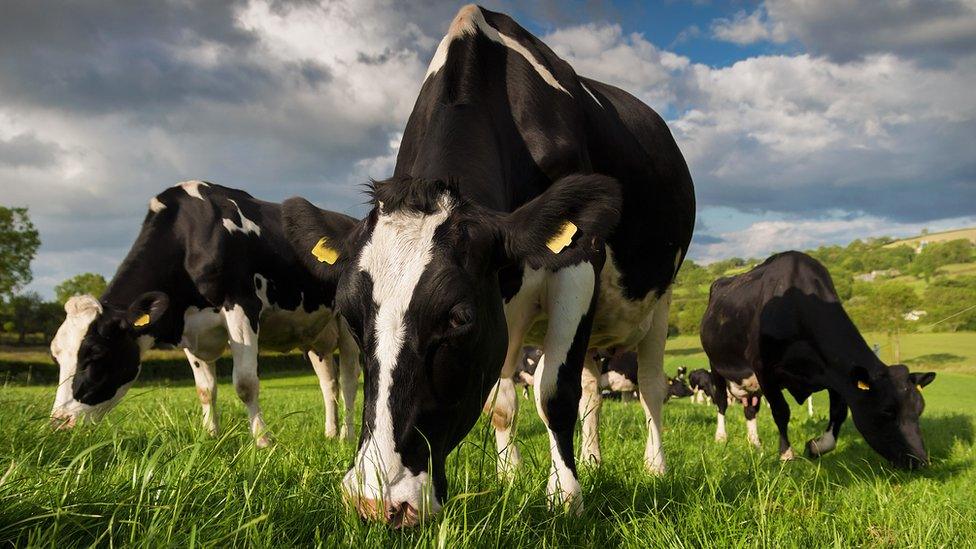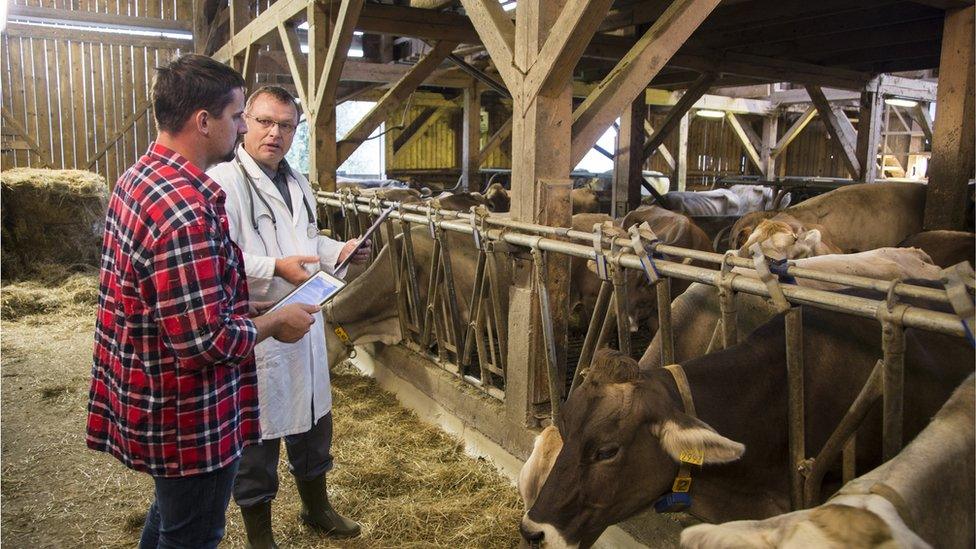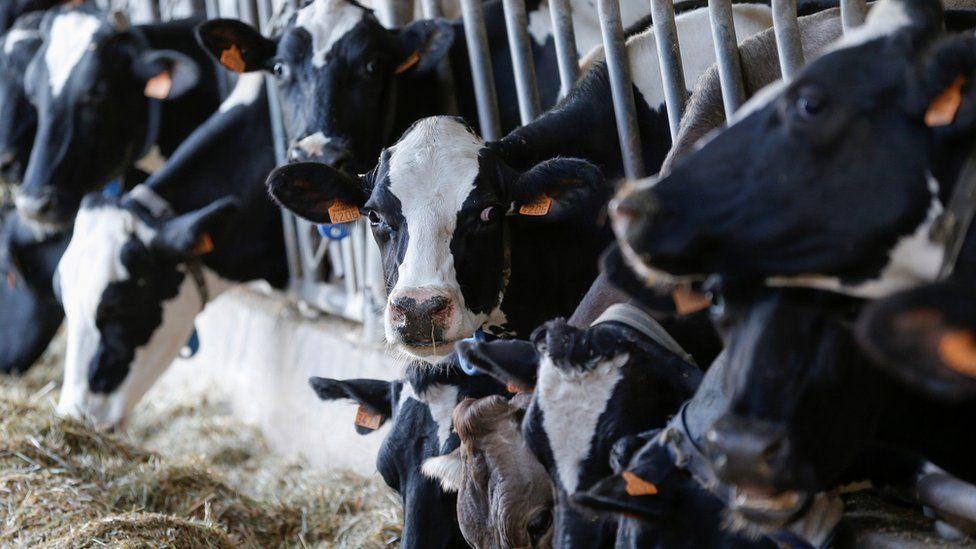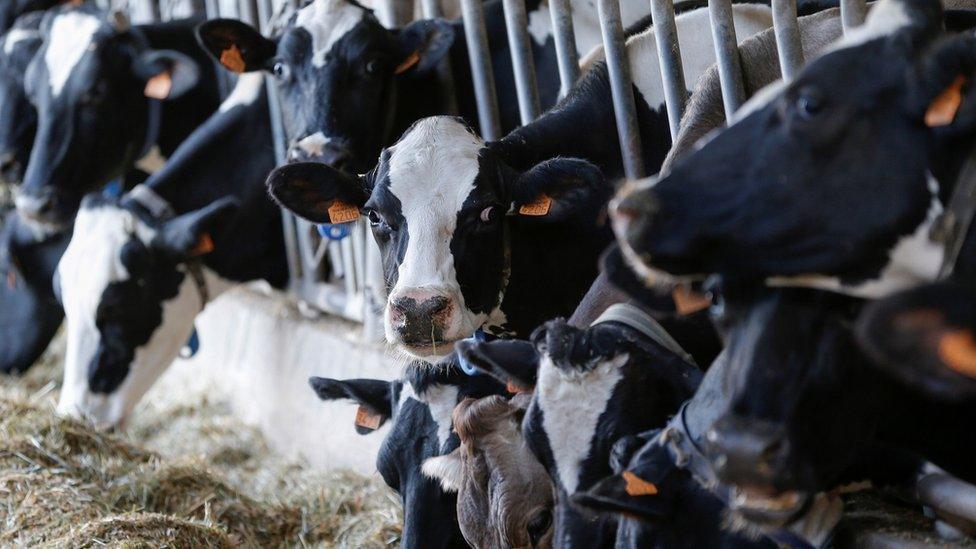Bovine TB tests resume across Northern Ireland
- Published

Bovine tuberculosis is an infectious disease which affects cattle
Bovine tuberculosis (bTB) tests on cattle in Northern Ireland have resumed, after a six-month contract was signed by vets.
Tests had stopped after the previous contract expired on 10 April.
It came as bTB incidents on Northern Ireland farms were the highest in more than 20 years.
Last year, the Department of Agriculture, Environment and Rural Affairs (DAERA) spent just under £50m dealing with the disease.
This led to almost 18,000 cattle being removed and put down after testing positive.
Vets said a "more sustainable, long-term approach" to the testing regime was needed.

Vets say a "more sustainable, long-term approach" to the testing regime was needed
Philip Walsh, treasurer and past president of the Association of Veterinary Surgeons Practising in Northern Ireland (AVSPNI) said that the department had to be "more realistic".
"The performance management aspect of the contract, in terms of how the department measures the performance of the vets doing the testing, some of it was extremely onerous," he said.
"Expecting 100% perfection in a system where you're dealing with live animals and the paperwork aspects of that is not really possible in many cases. A lot of it is to do with timelines and times of results being sent back."
'Fair and affordable offer'
Following negotiations, the department confirmed that "the compliance levels for a number of the key performance indicators have been reviewed".
"The previous contract expired on 10th April and to date the majority of practices have resumed testing."
It added that "against the backdrop of continuing budget uncertainty facing all departments and the severe financial pressures that exist across all public services, the new contract is considered a fair and affordable offer at this time".
Annual testing of cattle for TB is a minimum requirement and if it is not met, it can lead to restrictions on livestock movements and penalties for farmers.
Some herds may be tested more frequently if they are considered at higher risk.
Disparity in pay
Mr Walsh said the AVSPNI had agreed to continue meeting with DAERA to try to avoid a similar issue arising in six months' time.
"Back in 2016, when the initial contract was given to us, we were tied to the average of what our English counterparts particularly were getting paid," he said.
"But that has changed substantially in recent years."
He added: "Costs have increased, the veterinary labour market is very difficult and there is a great demand for vets, particularly vets willing to work in mixed or large animal practice, salaries have gone up and will continue to go up which is good, but that means it's more costly for us to provide the service.
"We would like to have something where we were getting similar amounts to our colleagues across the water for doing the same job."
A strategy to tackle bTB, including a badger cull, was announced by the former DAERA minister Edwin Poots in March 2022.
Related topics
- Published12 April 2023

- Published28 August 2021

- Published27 July 2022
